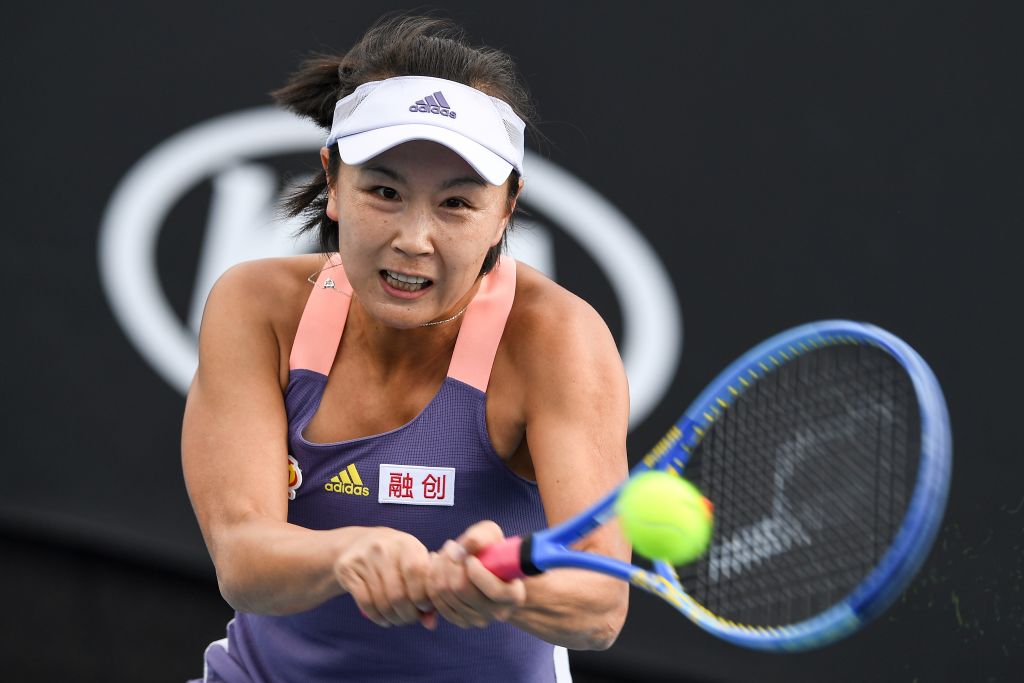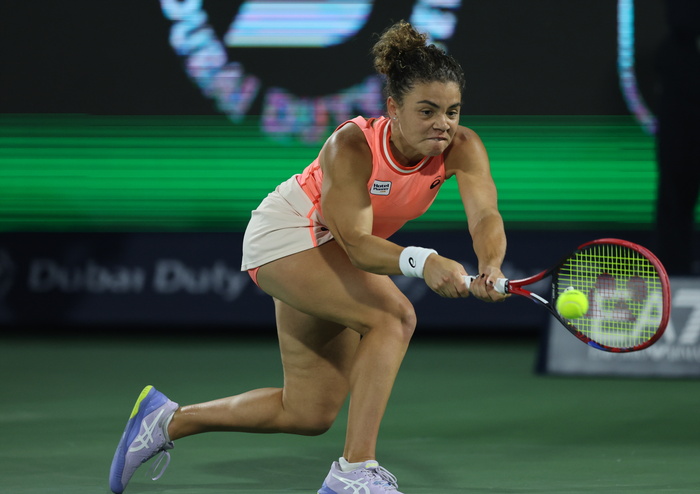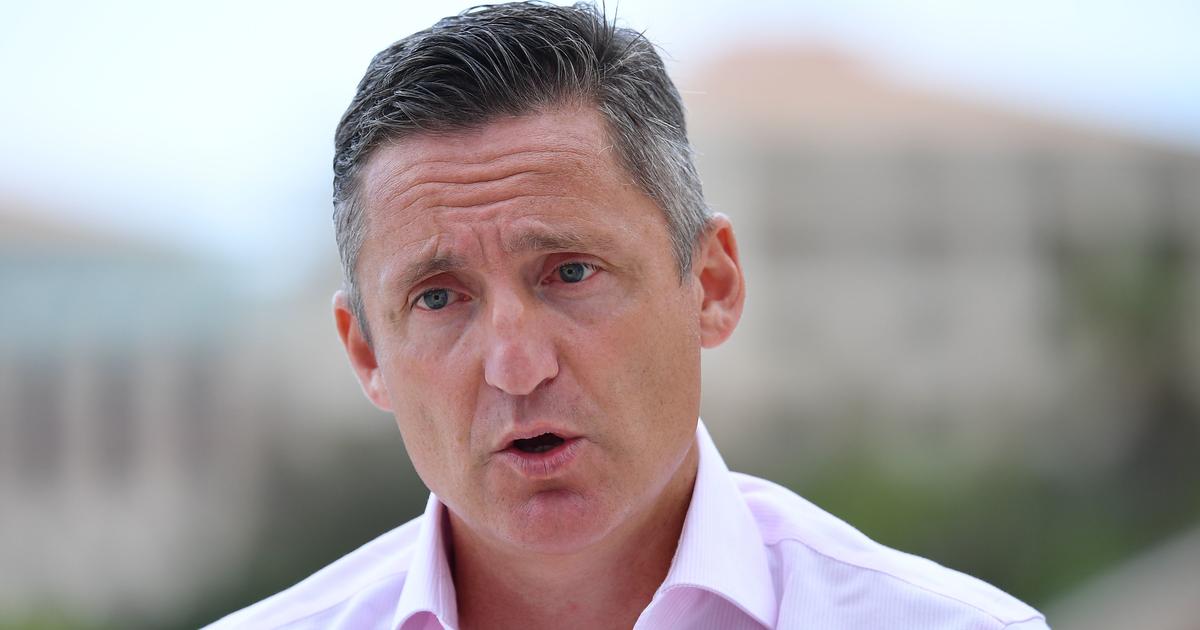An email still does not convince about the whereabouts of Peng Shuai 2:59
(CNN) -
When tennis star Peng Shuai launched her explosive sexual assault charge - in the context of the # MeToo movement - against a former Communist Party leader earlier this month, the Chinese government responded as usual: silencing it with a blanket censorship.
Now, more than two weeks later, Beijing is facing a storm caused by its own reactions as the global women's tennis community rises to challenge the Chinese authorities for silencing one of their teammates.
China's state media released an alleged email from tennis star Peng Shuai amid concerns about her whereabouts
Peng, 35, a two-time Grand Slam doubles champion, has disappeared from the public scene since she accused former Deputy Prime Minister Zhang Gaoli, 75, of coercing her into having sex at home, in a post in the social networks that was already deleted on November 2.
Since then, Chinese censors have diligently removed his name and even vague references to his allegations from the internet.
Reactions outside China to the disappearance of Peng Shuai
But the silencing campaign has not worked outside of China.
In recent days, the Women's Tennis Association (WTA) and some of its top stars, past and present, have spoken in solidarity with Peng, demanding to know her whereabouts.
Chinese tennis player Peng Shuai.
Concern has only increased after Chinese state media published a screenshot of an email, allegedly sent by Peng to the WTA, in which she retracts her sexual allegations and claims that "everything is well".
advertising
In an interview with CNN, WTA chief Steve Simon described the email as a "staged statement of some kind."
He also stated that the association is "at a crossroads" with China, threatening to withdraw its business out of the country if Peng's safety is not guaranteed and his allegations are not properly investigated.
And the repercussions are not limited to women's tennis: there are already male tennis players who have joined the Twitter campaign titled #WhereIsPengShuai, as have soccer stars.
With less than three months to go before the Winter Olympics, analysts say the controversy, if not resolved, could escalate into an unprecedented showdown between the wider sports community and Beijing.
"Sports fans around the world will pay attention to this story, which means billions of people," said William Nee, research and advocacy coordinator for the NGO Chinese Human Rights Defenders (CHRD).
"Impending disaster"
"This is an absolutely imminent disaster for the Chinese government. Every day that the Winter Olympics approaches, the disaster grows bigger for them, if they don't solve this."
The Beijing Olympics, scheduled for February, are already facing growing calls for a boycott over the Chinese government's crackdown in Xinjiang, Tibet and Hong Kong.
And the worldwide clamor for the disappearance of Peng - who has participated in three Olympics - may amplify those calls, Nee said.
The International Olympic Committee (IOC), for its part, said it would not comment on the matter and suggested that "quiet diplomacy" be used, Reuters reported.
CNN has reached out to the IOC for comment.
Direct challenge to the government of China
That a post on social media, since censored, has been able to mobilize the tennis world to take on Beijing, probably came as a surprise to the Chinese government.
In recent years, the Beijing authorities have successfully silenced not only countless national voices, but also a growing list of Western companies and industries hoping to maintain access to the lucrative Chinese market, from Hollywood to the NBA.
Peng Shuai pictured at the Australian Open on January 21, 2020 (Credit: GREG WOOD / AFP via Getty Images)
But the WTA has refused to play along.
"It happens too many times in our world today that when we get into things like this, we let business, politics and money dictate what is right and what is wrong," said Simon, the head of the WTA, in his interview with CNN on Thursday.
"We have to start as a world making decisions that are based on right and wrong, period, and we cannot give in to that," he said.
"We are definitely willing to withdraw our business and deal with all the complications that come with it. Because, certainly, this is bigger than the business."
As it prepares to turn its back on access to the Chinese market, including a 10-year deal to hold its annual finals in the southern Chinese city of Shenzhen, the WTA is posing a direct challenge to Beijing.
Tactics that no longer work
Beijing routinely uses market access as a powerful lever to force Western companies to be silent on human rights, or to bow to their positions on issues such as Taiwan and Hong Kong.
But in the case of the WTA, these tactics have not worked as intended.
"So far, from a business and human rights point of view, the WTA is doing a much better job than almost all the companies that have been embroiled in controversies in China. And this actually shows a way forward on how to do it, "said Nee of CHRD.
Is what AMLO proposes viable in the face of China's growth?
1:08
Mareike Ohlberg, Senior Researcher for the German Marshall Fund's Asia Program, said the bold move the WTA has taken is "the right thing to do."
"It's what frankly more (organizations) should do. Most organizations are very afraid of China, (fearing) that China may punish them. I think it's important that more organizations realize that they also have some influence," he said. .
The nature of Peng Shuai's allegations has also set her case apart from previous political controversies related to China's crackdown in Xinjiang, Tibet and Hong Kong.
In those cases, an outraged Beijing lashed out at Western companies for meddling in "China's internal affairs."
A movement without borders
But the women's rights movement knows no national borders.
To date, the Chinese government has acted to crack down on the #MeToo defense.
It has taken advantage of its authoritarian apparatus to arrest, imprison, threaten and silence Chinese feminists and their supporters.
And it has mobilized its propaganda machine to present feminism as a puppet of Western influence designed to undermine China.
But now, those tactics may backfire as the global #MeToo movement helps draw attention to the Peng Shuai case, Ohlberg said.
How does the slowdown in China impact Europe?
1:10
"It is a transnational movement that has ties abroad, and therefore it cannot be limited to one country, and you cannot silence people in China," he said.
"And that is why it is so important that people keep talking about these things internationally. Because if you are in China, the state has many options to shut you up," he said.
"(The international community) has a certain responsibility to show solidarity."
The Beijing dilemma
By silencing Peng, Beijing faces an unusual dilemma.
If Peng were to appear on state television, analysts say many will take what he says with a grain of salt, given the Chinese state media's long history of broadcasting forced confessions or other statements made under duress by people in extrajudicial detention.
And while in Western democracies it would be easy for the ruling party to deny such accusations, or even distance itself from a senior official, in China, party leaders are blameless to members of the general public.
And Zhang is not just any leader.
In his day he was part of the Standing Committee of the Political Bureau of the Communist Party, seven members, the supreme governing body of the country, along with Chinese President Xi Jinping.
The only way for senior leaders to fall out of favor is for the party itself to discipline them, as some of them have in Xi's broad anti-corruption campaign.
This is how Asia is intensifying its arms race 4:01
To date, the Chinese government has repeatedly refused to comment on the Peng Shuai case.
At a press conference on Thursday, Chinese Foreign Ministry spokesman Zhao Lijian said Peng's accusation is not a diplomatic issue and declined to comment further.
CNN has contacted the Information Office of the State Council of China for comment.
Political sensitivity is perhaps best demonstrated in a tweet by Hu Xijin, editor-in-chief of the state-run nationalist tabloid
Global Times.
Hu is the only high-level propagandist in the state media who has commented on the Peng Shuai case in public, albeit on a banned platform in China.
"As a person familiar with the Chinese system, I do not believe that Peng Shuai has received the retaliation and repression speculated by foreign media because of what people have commented," he wrote in the early hours of Thursday, apparently too fearful to mention. even the name of the accused or the nature of the accusation.
Peng shuai









